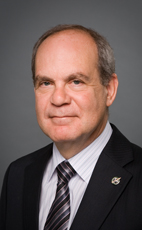Mr. Speaker, on March 23 and again on March 24, I asked the Minister of Fisheries and Oceans about his plans to ensure the survival of the Fraser River sockeye and, in particular, whether he was going to implement the recommendations contained in the recent report of the standing committee. I appreciate the opportunity to follow up on those matters.
Let me begin by reminding the minister that the second report of the Standing Committee on Fisheries and Oceans tabled on March 22 of this year requested a written response within 60 days indicating his intention with respect to the unanimous recommendations. The final paragraph of that report read:
If such a commitment is not forthcoming, or if it appears that in spite of a commitment, no serious attempt is being made to implement the recommendations, the committee will use all possible means to convince the Government of Canada to conduct a judicial inquiry into the Fraser River sockeye fishery, and that the focus of this inquiry be on enforcement and other issues relating to how the fishery was managed in 2004.
I know the minister will appreciate my reminding him that as of May 21, those 60 days will have come and gone and that so far we have not seen a response. Let me say that this lack of response inspires no confidence that there will be adequate enforcement in the 2005 Fraser River sockeye fishery.
The minister has been questioned repeatedly in the 60 days, not only in regard to the recommendations of the standing committee but also on those of the 2004 post season review by former B.C. chief justice, Bryan Williams. Both reports highlighted the need for increased enforcement.
In response, the minister has made promises of reform and spoken of forthcoming changes. He has even released his so-called blueprint to move forward with changes to the Pacific fishery but has yet to validate any of the 12 specific recommendations of this committee.
A quick look is all that is needed to see that the minister's April 14 blueprint is large on generalities and very short on details, but on the subject of enforcement, the minister sounds quite decisive. In the minister's speech that day he promised:
...let me be clear, I am committed to taking steps to improve compliance levels and strengthen enforcement in the region this season.
However, contrary to that statement, the only plans that have been announced for this season call for a reduction in enforcement officers in the Pacific region. Internal DFO documents reveal that a decrease in regional enforcement officers is in the works, beginning with six this year, nine the following year and six in the third year.
DFO managers have talked about there being more officers on the Fraser River this summer, but how can this be? Where will they come from? They say that they will move officers from other parts of the region, but how is this possible? In light of the announced reductions, is that not just robbing Peter to pay Paul, as popular a concept as that may be these days?
While the minister's blueprint mentions reform in a number of contexts, virtually no policy changes were announced for 2005 and it is far too late for them to be announced for this season. It is also too late for education or any other model of enforcement that is proactive or based on compliance to affect this season's sockeye.
The only thing that 2005 Fraser River sockeye can ask the minister for at this late stage is an increase in enforcement.
Will the minister finally admit that he could have done much more to alleviate the collapse of the 2004 season and will he act immediately to increase enforcement for the 2005 season in order to prevent a repeat of that catastrophe? Or, will it take a judicial inquiry and another lost season in order for that to occur?

